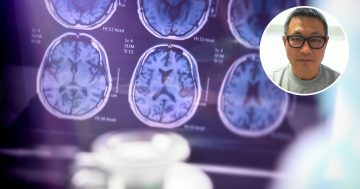 A University of Queensland (UQ) neuroscientist is being helped by local athletes in her efforts to tackle the problem of concussion in sport.
A University of Queensland (UQ) neuroscientist is being helped by local athletes in her efforts to tackle the problem of concussion in sport.
Neuroscientist from the Queensland Brain Institute at UQ, Fatima Nasrallah (pictured) is seeking to develop a quick and cheap test for measuring brain recovery.
Dr Nasrallah is using advanced Magnetic Resonance Imaging (MRI) to collect data on mild traumatic brain injuries to give certainty to when an athlete’s brain has fully recovered and it is safe to resume play.
“You may feel fine — recovered from headaches or blurred vision — but your brain takes longer to mend and is still recovering behind the scenes,” Dr Nasrallah said.
“If you get another knock during this time, the effects are cumulative and can lead to long-term consequences.”
She said an advanced MRI scan could pick up very subtle changes in the brain and then process the data to get a deeper understanding of how the brain recovered from different types of impacts.
“It’s challenging for sporting bodies to make policies and guidelines around concussion when there’s such a huge gap in knowledge,” Dr Nasrallah said.
“By studying a wide variety of impacts, we can build up a picture of how the brain is recovering.”
Dr Nasrallah has had many willing volunteers, with AFL and rugby players, fighters and kickboxers all having a brain scan in the name of science and better athlete welfare.
One such volunteer is former professional AFL player, Ed Barlow, who said as a psychologist he was increasingly interested in the effects of concussion on the brain.
“I would definitely encourage players to get involved in the study — having the scans was time-consuming but this is a growing area of concern and we are only just scratching the surface with what we know,” Mr Barlow said.



